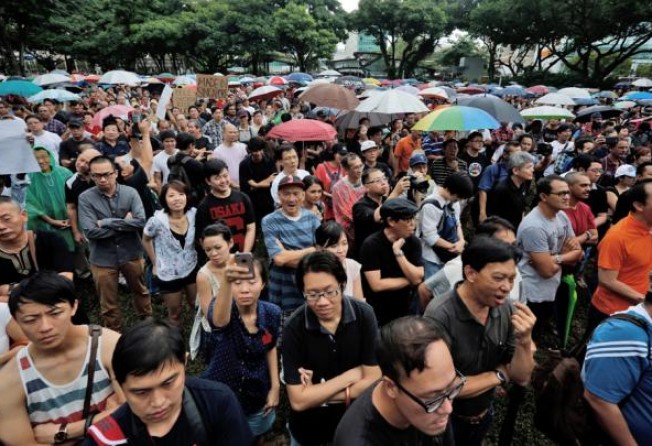Singapore's livelier politics a sign of the times
Stephan Ortmann says a fall in living standards is encouraging people to speak up in protest

The recent protest by an estimated 4,000 Singaporeans, against government plans to increase the city state's population largely through immigration, may not have been large by Hong Kong standards.
Yet in Singapore, where open political expression is greatly restricted, it was deeply significant. And it reflects a larger process of political change that has been unfolding in recent years. Essentially, Singapore is more politicised, with more citizens becoming politically engaged.
There are many reasons for this. Most significantly, steady increases in the cost of living and relatively slow or stagnant increases in wages at lower ends of the labour market have led to tangible declines in living standards. Singapore is now the third most expensive city in Asia, after Tokyo and Osaka, and Singaporeans, who work among the longest hours each week, are hard pressed to keep up.
By some measures, it has a high degree of social inequality, exceeded only by Hong Kong. Though Singapore is a wealthy society, a recent Gallup poll found Singaporeans to be the unhappiest of those in 148 countries, behind Afghanistan, Iraq and Syria.
The anger of many Singaporeans is directed at the ruling People's Action Party (PAP), which has been in power since 1959 and continues to dominate parliament. Traditionally, the PAP leadership has said it would not bend to populist pressures. Opposition to its rule has been severely repressed.
Repression is perhaps tolerable amid economic growth. Yet the perceived lack of improvement in the lives of many average Singaporeans over recent years has changed things. In the last general election in 2011, the ruling party suffered its worst setback since independence with the highest number of opposition members elected to parliament. While it still received 60.1 per cent of the popular vote, the negative trend was clear and the government has made some changes.
However, they have so far been insufficient as witnessed in two recent by-elections, which were both won by the opposition Workers' Party. The PAP's grip on power is effectively being challenged.
The recent protest signals the growing desire for greater participation in politics. Much of this change has unfolded in cyberspace, which Singaporeans use to mobilise participants.
Old means of repression are less effective. The state still curtails expression through a variety of means. Yet Singaporeans are less docile than in the past. A growing number are daring to challenge state power. Politics in Singapore may yet become more competitive, plural and responsive to the people. That would be a positive move for Singapore.
Stephan Ortmann is a research fellow at City University of Hong Kong